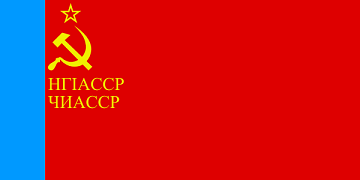Back in the ChIASSR By Magomed Toriyev, special to Prague Watchdog
Two consecutive public demonstrations recently organized by the so-called "initiative group for the unification of Chechnya and Ingushetia" which has suddenly materialized out of the blue make it appear quite certain that these events were not (nor could have been) the result of spontaneous planning. The rally in Grozny – a city where all events of this kind can only be held with official authorization – left no doubt as to the identity of the initiators, who indeed made no attempt to conceal that they were acting in agreement with the authorities.
Today the patron of the "expression of the people's will" is Ramzan Kadyrov, and in the present situation the only really interesting question is whether the Chechen leader has agreed his plans with the federal centre or whether he is acting independently in the hope of sooner or later forcing his project through in the corridors of the Kremlin or the White House, the Russian government building.
At all events, there is reason to believe that Kadyrov's position is now so strong that no matter what the scenario, he can be confident that his ambitious initiative will succeed. He is able to employ an ideal range of arguments which the federal government will find both logical and comprehensible. Chief among these is the argument that, unification will be the swiftest and most effective way of leading Ingushetia out of its protracted crisis. It is safe to assume that the Kremlin has long been privy to the weakness of President Murat Zyazikov’s position.
On the whole, Chechens view the idea of unification calmly, as they know that even if it goes ahead, nothing much in their lives will change. For the Ingush, on the other hand, it is a painful prospect, though their attitude is not unequivocally negative. People in the republic have not forgotten how for many years, within the framework of the ChIASSR (Chechen-Ingush Autonomous Soviet Socialist Republic), the territory on which the Ingush lived was doomed to play the role of an agrarian appendage with poor infrastructure and residual financing. In Soviet times, all the heavy industry was concentrated in the "Chechen" part of the autonomous republic.
A far more important issue in the minds of most Ingush is the status of Prigorodny district, which since 1944 has been part of North Ossetia. People in Ingushetia suppose that if unification with Chechnya goes ahead they can forget about the return of the lost territories forever, since Ramzan Kadyrov, who nearly always plays by the rules of the federal government, is unlikely to want to risk his position at risk by being dragged into a discussion of this “closed” question.
Even so, many ordinary Ingush are of the opinion that close relations between Putin and Kadyrov may actually create the conditions under which the issue of Prigorodny district can be re-formulated at the highest level. They believe that all that is needed is a good friendly talk, in the course of which the parties will agree to put pressure on Ossetia and give the Ingush back their land. While such expectations are obviously unfounded, they are nevertheless becoming a very serious factor in the likely future of the reunification process.
However, the history of Prigorodny district also holds out hope of another prospect, one which under certain conditions may be capable of fulfilment. While people in Ingushetia realize that Kadyrov is not going to go down a blind alley by raising the problem of Prigorodny, they believe that a platoon of Kadyrovites sent to the villages the Ossetian government has declared off limits to the Ingush refugees would be enough to make the Ossetian police flee in terror. And if the siege of the villages is lifted, the refugees can return home.
Although a scenario of this kind cannot be ruled out altogether, it is much more probable that the Kadyrovites will not be allowed to throw their weight around in Prigorodny. At one time their attempts to establish their own way of life in Dagestan’s Khasavyurtovsky district were brusquely halted by the Dagestan police and the federal authorities, as the ensuing conflict could quite well have degenerated into serious clashes on the Chechen-Dagestan border. The story was much the same in Nalchik, where Chechen siloviki made an appearance in order to punish the local youth, who had been beating up students from Chechnya. In the case of North Ossetia Moscow may make some concessions, but only as long as there is no danger of full-blown war.
While, given the chance, most Ingush today would now speak out against a union with Chechnya, the supporters of the idea have some very strong arguments in its favour. Most Ingush despise Zyazikov for the weakness of his authority and the arbitrary violence of his law enforcers – violence which has mushroomed in the republic with his full acquiescence.
Now that the republic is mired in chaos, some Ingush would gladly swap Ingushetia’s regional status for a Kadyrov dictatorship in the hope that even though the political freedom of their lives would be severely restricted, they would at least have some definite rules by which to play.
The illustration is borrowed from Wikipedia. (Translation by DM) (T)
DISCUSSION FORUM
|

